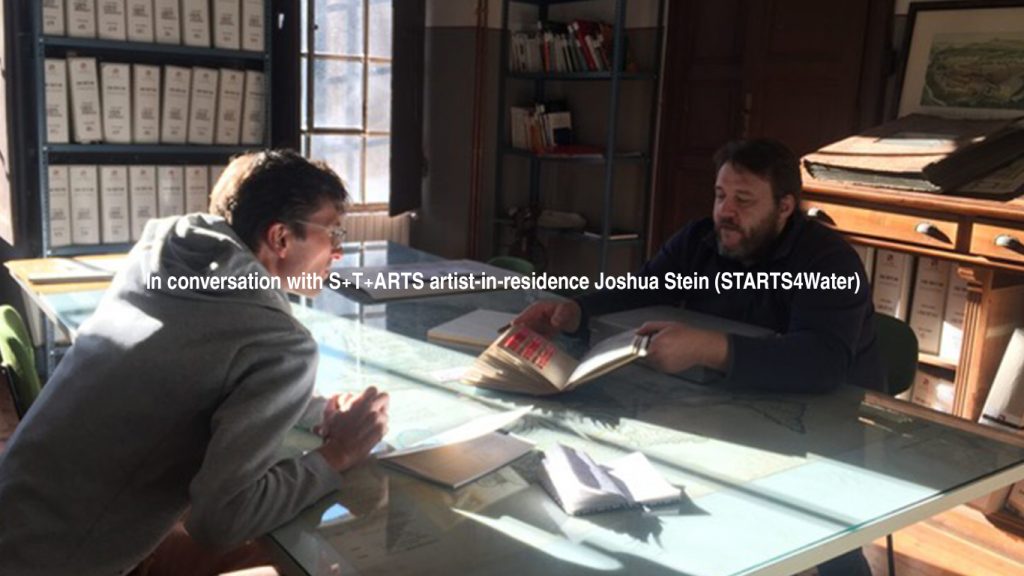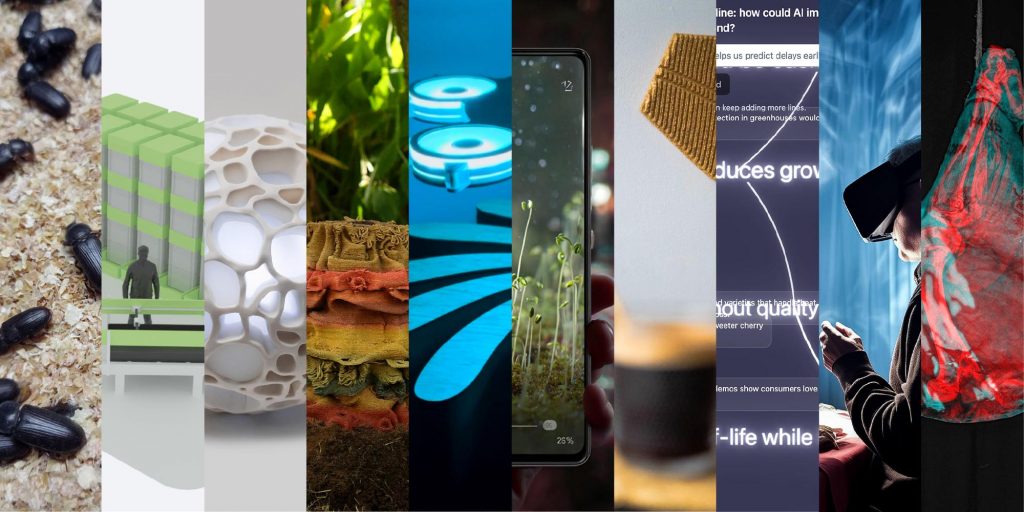A conversation with artist-in-residence Joshua Stein on his the research phase of his S+T+ARTS residency hosted by Cittadellarte (STARTS4Water)
As the founder of Radical Craft, a research and design studio that combines architecture, art and urbanism, US-based artist Joshua Stein has spent his first few S+T+ARTS4WATER-months traveling back and forth to the Po Valley in Northern Italy. His objective is to look for evidence of UNESCO-monument architectural debris downstream as it mixes with effluent from local industries in the surrounding rice fields and rivers of Biélla. By doing so, he wants to raise the question of how we define cultural heritage. Does it lose standing when it disintegrates and leaves its original site? Does it include the undesirable byproducts of the desirable industries that make up a part of the regional cultural heritage?
Considering the developmental phase of his project, Joshua has spent two weeks in Italy to meet up with potential collaborators and representatives of his host institution Fondazione Pistoletto. “The host institutions are more than facilitators, in a good way. They let me have my say as an artist, but at the same time they have a lot of expertise. I feel like we’re all trying to do the same thing, it feels healthy.”
Besides working together with the official institutes of collaborators as assigned by S+T+ARTS, Joshua has also met many local experts that provided him with a lot of information about the valleys surrounding Biélla. There was Danilo for example, the head archivist of the regional archives, who showed him a set of different chemical composition samples of wool dye from the late 1800s, which may still exist in the landscapes and the bodies of people surrounding the Po Valley. Or Andrea, whose family runs a rice farm and who is trained in both marketing and gastronomy. He taught Joshua a lot about the ecosystem of all the family-run businesses around the Canale Cavour, an 85 km long artificial canal that is essential for the valley’s rice cultivation.
One thing that pleasantly surprised Joshua was the way northern Italian agronomists think about how culture interfaces with the earth. It differed from his potentially more US-based and industrialized worldview, in which the origin of the world as we know it mainly focuses around what is created by humans. However, the Italian worldview seems to be drawn from a period many decades before this era and tends to take more account of the natural world. Instead of focusing on industrialization, Joshua found that inhabitants of the Po Valley have a much more lived experience and knowledge of what is there under their feet.
When asked about challenges that occurred during the first phase of his project, Joshua mentioned it was initially difficult to find the right people who have access to the technology he wants to use. The aim is to use Geographic Information System (GIS) mapping and other technologies that are based on chemical tracking or tracing of sedimental elements. Currently, his host organization Fondazione Pistoletto is assisting Joshua in overcoming this issue. Another challenge is that he has to do most of the project from abroad due to COVID. This might also complicate some collaborations. “I feel very distant in terms of time zones and flight times, and going to particular locations. Time will tell if this has an effect on the project itself.” However, his collaborators at the Fondazione Pistoletto have worked around this challenge by setting up numerous Zoom conversations with various experts.
Text by Cato Boeschoten


